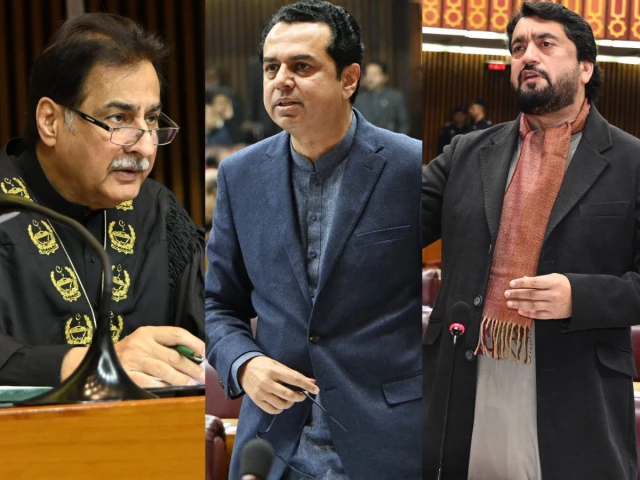Reception for about 350 guests was arranged, with the Sharif family hosting a traditional feast featuring local dishes
The mehndi ceremony of Junaid…

Reception for about 350 guests was arranged, with the Sharif family hosting a traditional feast featuring local dishes
The mehndi ceremony of Junaid…

Pakistan’s grid electricity demand remains depressed while solar net-metering adoption has surged nearly fourfold over the past two years, according to the State of Industry Report 2025 released by the power regulator.
During…

MNAs from across party lines call for urgent policy formulation to curb such crimes as scams take new forms
Speaker National Assembly Ayaz Sadiq, Minister of State for Interior Talal Chaudhry, and PTI MNA Sheharyar Afridi address the National…
LAHORE: Punjab Chief Minister Maryam Nawaz on Thursday said…

ABU DHABI/LAHORE – UAE’s national flag-carrier Etihad Airways has cancelled and delayed several flights between Abu Dhabi and Pakistan after adverse weather conditions disrupted operations in Lahore and Karachi, affecting passengers…
LAHORE: The Punjab government is considering declaring Friday a public holiday to allow Lahorites to enjoy a four-day weekend during the Basant Festival, scheduled to be held in the city from February 6 to February 8, 2026.
Officials said…